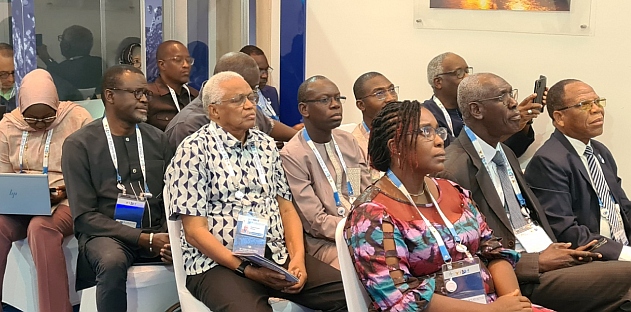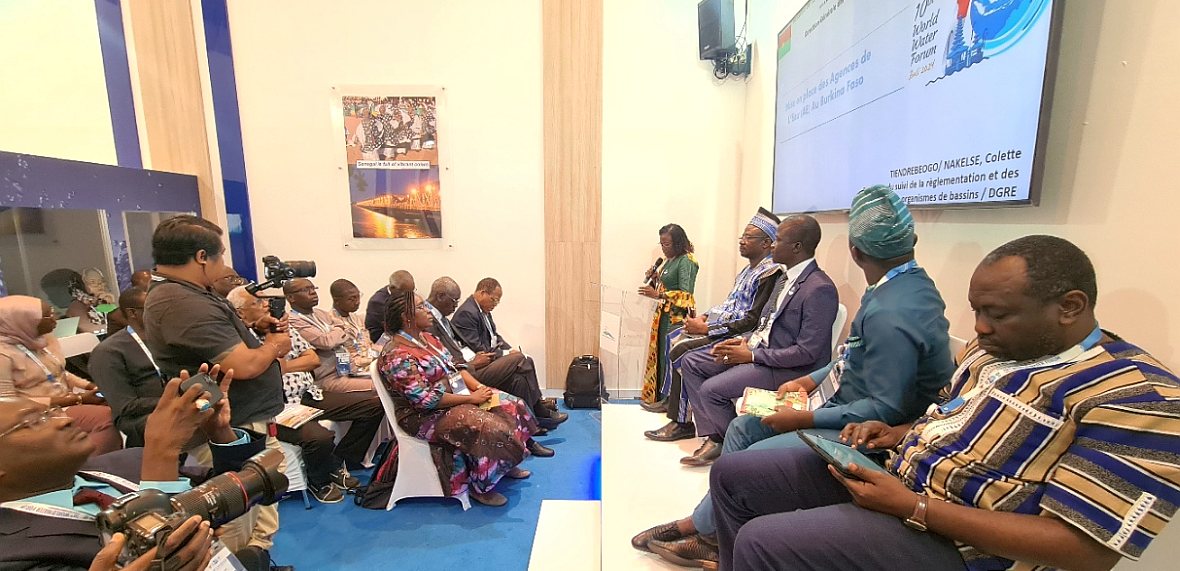Each of these personalities welcomed and encouraged this regional partnership initiative, which deserves to be strengthened and supported.
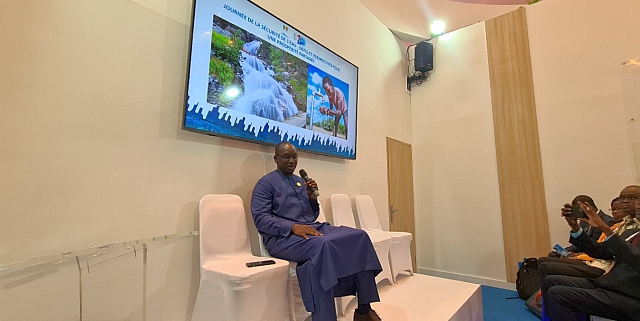
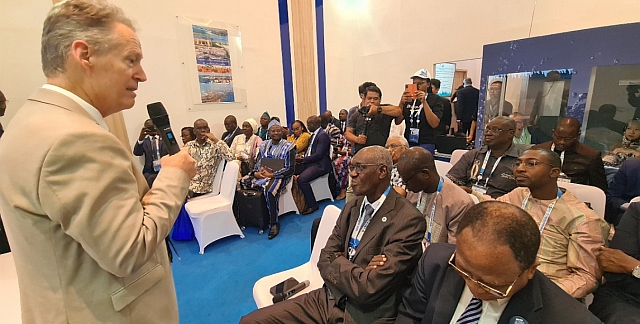
In his introductory remarks, Mr SENE, Chairman of GWP-WA, said that West Africa, including the WAEMU, which comprises eight (8) countries, is a diverse region that is home to a third of Africa's population. The region is characterised by, among other things, a large availability of surface and underground water resources, unevenly distributed in time and space.
Despite their enormous hydraulic potential, the countries of West Africa are not on the right track to achieve the targets of SDG 6 by 2030, and to guarantee universal access to water for the supply of drinking water and other uses for socio-economic development (sanitation, agriculture and food security, energy security, etc.) and for the climate resilience of populations and ecosystems.
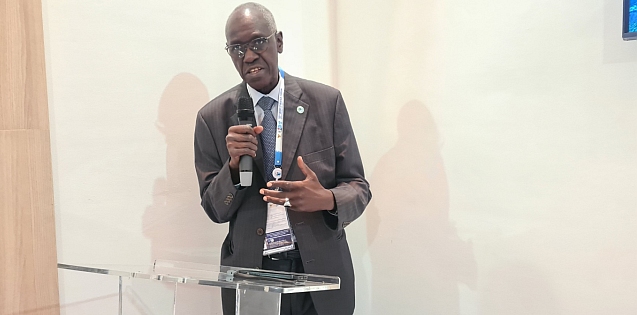 He recalled that at the West African Conference on IWRM in Ouagadougou (WAC-IWRM, 3-5 March 1998), the fifteen (15) Member States of ECOWAS and Mauritania, including those of WAEMU, decided to adopt the IWRM approach through the "Ouagadougou Declaration", which urges governments to implement it.
He recalled that at the West African Conference on IWRM in Ouagadougou (WAC-IWRM, 3-5 March 1998), the fifteen (15) Member States of ECOWAS and Mauritania, including those of WAEMU, decided to adopt the IWRM approach through the "Ouagadougou Declaration", which urges governments to implement it.
From 1998 to 2023, several IWRM implementation initiatives have been developed at local, national, cross-border and regional levels in the WAEMU region.
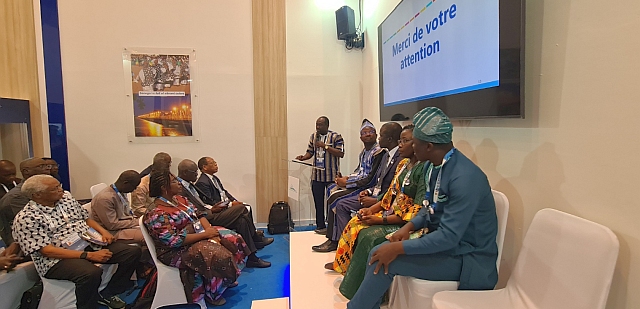 With this in mind, the WAEMU Commission, in collaboration with GWP-WA, the Embassy of the Kingdom of the Netherlands in Burkina Faso, the Pôle Eau Dakar, the Secretariat of the Water Convention, the UNEP Centre for Water and Environment (DHI) and partners, has initiated and is implementing a process to promote innovative and successful good practices in IWRM implementation for water security and resilient development in the WAEMU region.
With this in mind, the WAEMU Commission, in collaboration with GWP-WA, the Embassy of the Kingdom of the Netherlands in Burkina Faso, the Pôle Eau Dakar, the Secretariat of the Water Convention, the UNEP Centre for Water and Environment (DHI) and partners, has initiated and is implementing a process to promote innovative and successful good practices in IWRM implementation for water security and resilient development in the WAEMU region.
The main objective of the process is to advance the implementation of IWRM to ensure water security and resilient development, through the promotion of innovative and successful good practices in the implementation of the IWRM approach in the WAEMU region.
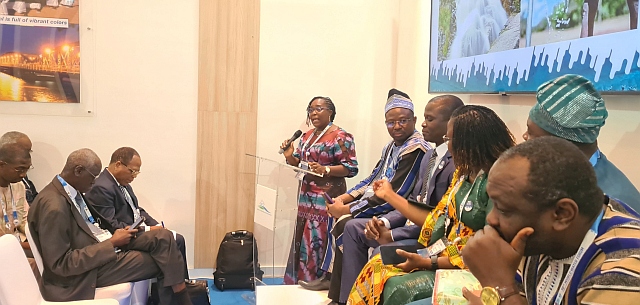 The process, which ran from September 2023 to mid-May 2024, made it possible, among other things,:
The process, which ran from September 2023 to mid-May 2024, made it possible, among other things,:
- to make an inventory and document innovative and successful good practices in the implementation of IWRM in the WAEMU Space;
- to hold the Regional Forum on the theme: ‘Capitalisation and scaling up of IWRM good practices for water security and population resilience in the WAEMU space’ from 28 to 30 November 2023 in Ouagadougou, Burkina Faso;
- to initiate the process of drafting the IWRM good practice manual for water security and resilient development in the WAEMU area;
- to organise preparations for the participation of representatives of the first six (6) IWRM good practice institutions selected at the Regional Forum at the end of November 2023.
The rest of the process includes
- the launch of the IWRM good practice manual for water security and resilient development in the WAEMU region; and
- the development and implementation of a regional programme to consolidate and scale up IWRM best practice in the UEMOA region.
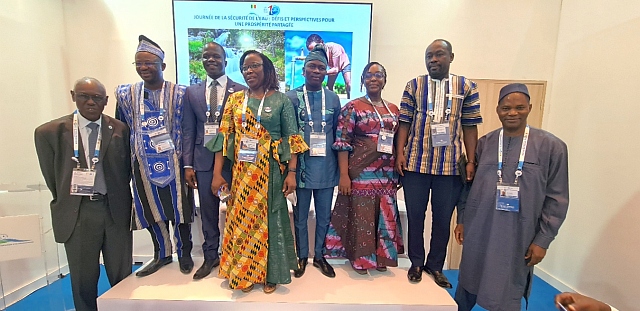 The session held on 23 May in Bali is part of the large-scale dissemination of good IWRM practices in the WAEMU region, and reflects all the efforts made by the partner organisations to contribute to achieving water security in the WAEMU region.
The session held on 23 May in Bali is part of the large-scale dissemination of good IWRM practices in the WAEMU region, and reflects all the efforts made by the partner organisations to contribute to achieving water security in the WAEMU region.
It enabled each of the six institutions to present their experience of implementing IWRM. They are:
- Volta Basin Authority: Results and prospects of the project ‘Integrating flood and drought management and early warning for adaptation to climate change in the Volta Basin’, presented by Dr. Dibi MILLOGO.
- Directorate of Water Resources Management and Planning of Senegal: Transboundary Cooperation on the Senegal-Mauritanian Aquifer Basin (BASM), presented by Mr Elimane FALL
- General Directorate of Water Resources of Burkina Faso: Establishment of Water Agencies in Burkina Faso, presented by Mrs Colette TIENDREBOEOGO/NAKELSE.
- Directorate General of Water of Benin: Delta Plan: Efficient Implementation of IWRM for Resilience to Climate Change in the Ouémé Delta, presented by Dr. Constantin Armel PANDA.
- Gourma Water Agency of Burkina Faso: Community monitoring of water resources through community relays, presented by Boubié Léonard BATIONO.
- National Water Partnership of Benin: Reversal of the degradation process of a catchment basin head source for the Mékrou River in Yakabissi in the commune of Kouandé (Mékrou sub-basin/Niger Basin), presented by Dr. Rachel ARAYE/KPANOU.
Progress on IWRM implementation was presented by Mr Sidi COULIBALY of the GWP-WA Regional Secretariat. These various presentations aroused great interest among session participants.
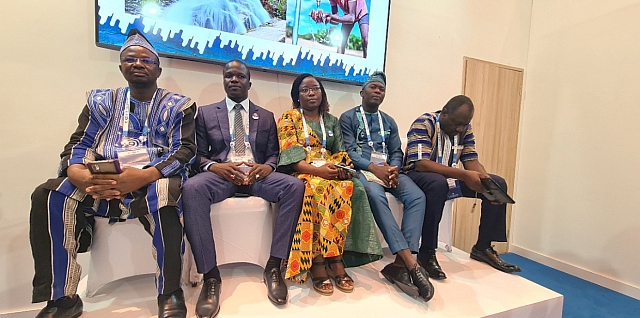 To conclude the session, Mr SENE pointed out that the West African region, considering the WAEMU area, has been involved in the implementation of IWRM since the end of the 1990s. It has a wealth of experience and good practice in IWRM, which needs to be capitalized on and promoted in order to help achieve water-related development objectives at various levels in the region. GWP-WA intends to continue the momentum created together with other stakeholders and partners committed to the same cause of ensuring water security in West Africa and the WAEMU region.
To conclude the session, Mr SENE pointed out that the West African region, considering the WAEMU area, has been involved in the implementation of IWRM since the end of the 1990s. It has a wealth of experience and good practice in IWRM, which needs to be capitalized on and promoted in order to help achieve water-related development objectives at various levels in the region. GWP-WA intends to continue the momentum created together with other stakeholders and partners committed to the same cause of ensuring water security in West Africa and the WAEMU region.
He thanked all the partners, including WAEMU, the Pôle Eau Dakar, the Dutch Embassy in Burkina Faso, DHI, the Secretariat of the Water Convention and all the other partners.
